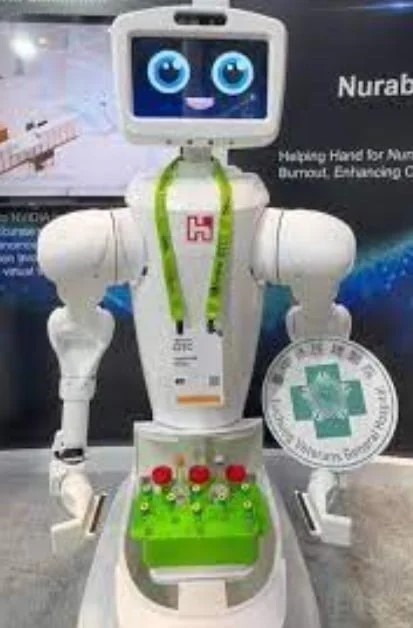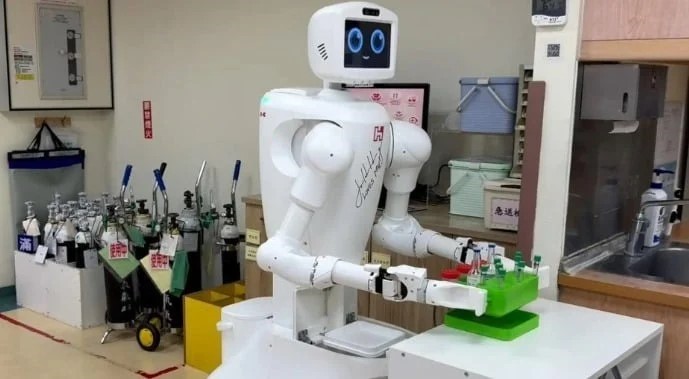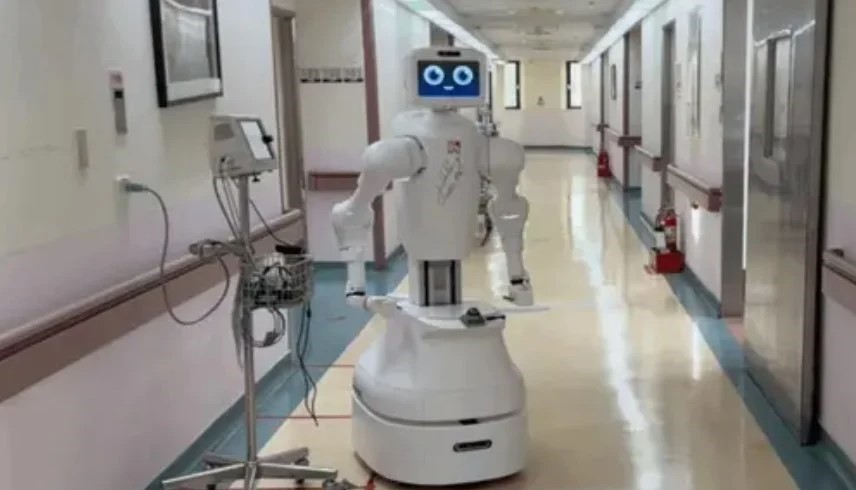Amid a growing global crisis threatening the disappearance of millions of nurses by 2030, robots are making their way into hospitals in Taiwan, offering AI-powered technological solutions to ease the burden on medical staff and reshape the future of healthcare.
اضافة اعلان
This development comes as the World Health Organization warns of a severe shortage of approximately 4.5 million nurses in the coming years—largely due to increasing burnout in healthcare environments. In a proactive response, tech giants Foxconn and NVIDIA have partnered to develop robotic technologies that support nursing staff in Taiwan’s hospitals.
The latest innovation is an intelligent nursing assistant robot named "Norabot", specifically designed to handle difficult and repetitive tasks—reducing both the physical and mental strain on nurses, according to a report by Interesting Engineering.
Norabot isn’t the only innovation in this field. Foxconn also unveiled a full suite of smart hospital tools powered by NVIDIA’s computing architecture. These include AI models to monitor patients’ vital signs, a “digital twin” system for optimizing hospital space design, and edge systems that enable real-time AI applications within hospital environments.
The process begins in data centers, where AI models are trained on powerful NVIDIA machines and tested through virtual simulations. Once proven effective, these systems are deployed in real hospital settings, and several leading medical centers have already joined the initiative.
Norabot, a product of collaboration between Foxconn and Kawasaki Heavy Industries, is equipped with multiple technologies, including the FoxBrain smart management system, Isaac for Healthcare for virtual training, and NVIDIA’s Holoscan and Jetson Orin platforms for real-time sensing and processing.



Daily tasks performed by Norabot include:
Delivering medications
Monitoring fetal health
Guiding hospital visitors
Transporting wound care supplies and educational materials to patients
According to Foxconn, the robot can reduce nursing workloads by up to 30%.
Shu-Fang Liu, Deputy Director of Nursing at Taichung Hospital, stated:
"Having a robotic assistant reduces nurses’ physical fatigue, limits frequent trips to supply rooms, and frees up more time to focus on patient care—especially during visiting hours or night shifts when staff is limited."
The medical team is hopeful that future versions of Norabot will include more advanced features such as:
Multilingual communication
Facial recognition
Physical assistance in moving or supporting patients
Liu expressed a vision where Norabot might help a single nurse conduct respiratory therapy for a patient with lung problems—replacing the need for two nurses and allowing more efficient use of human resources.



